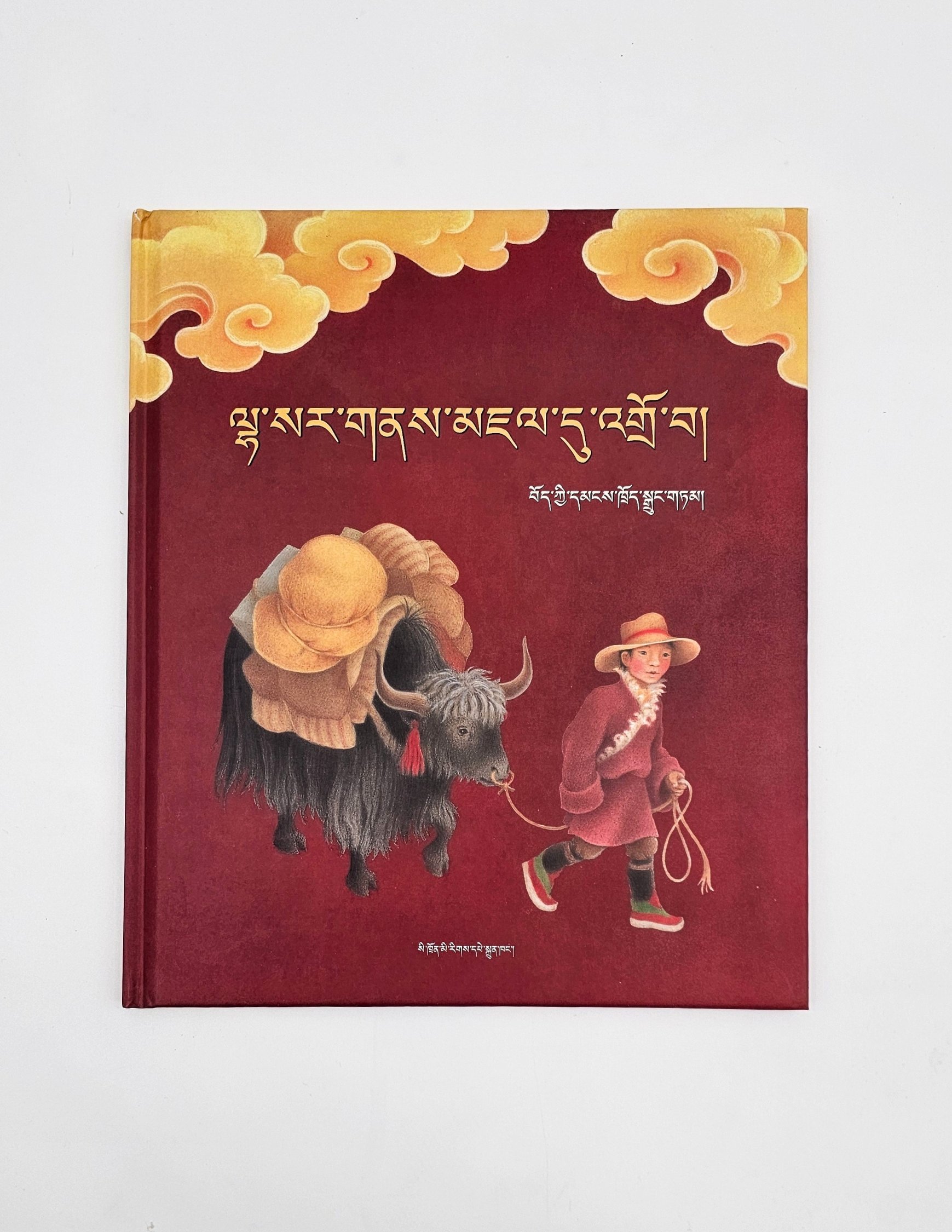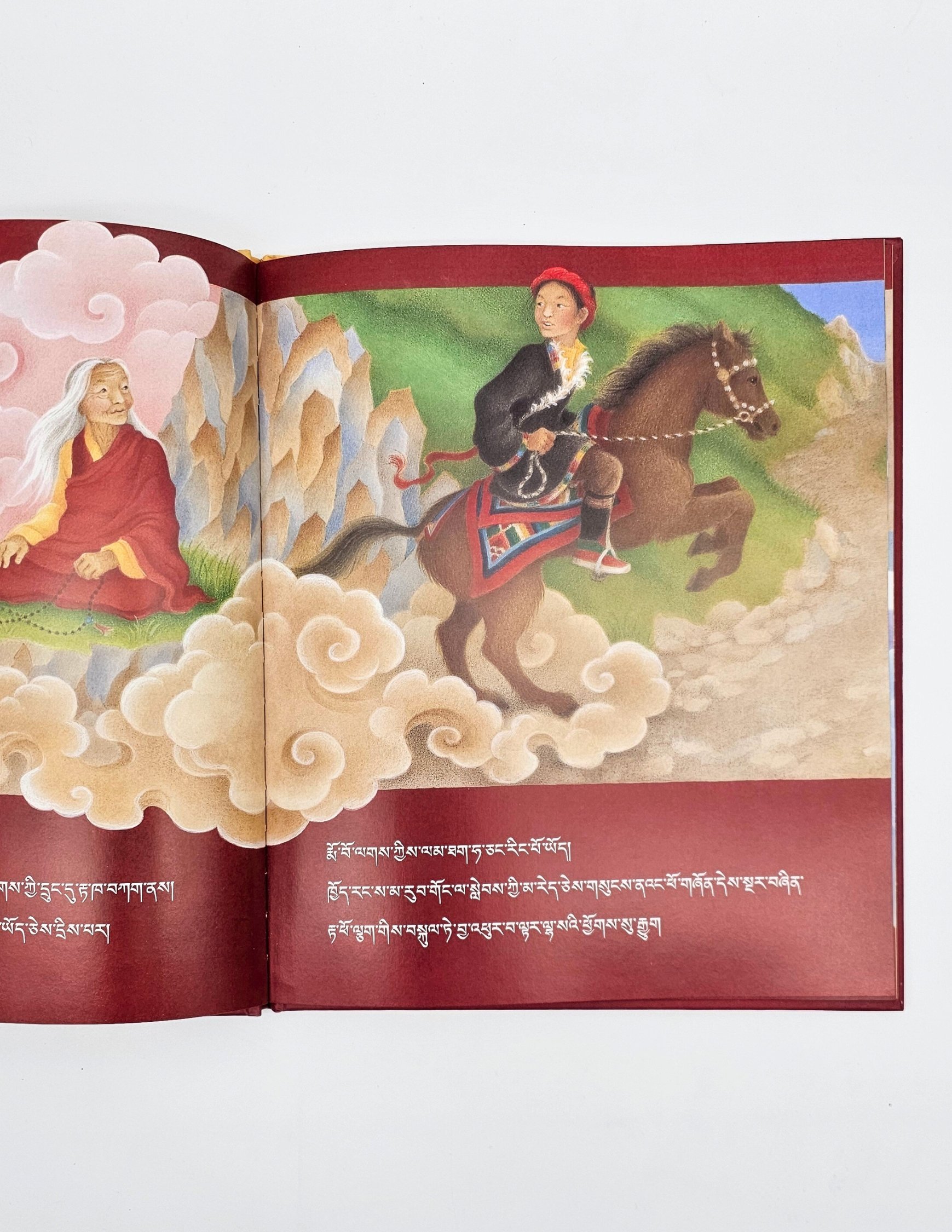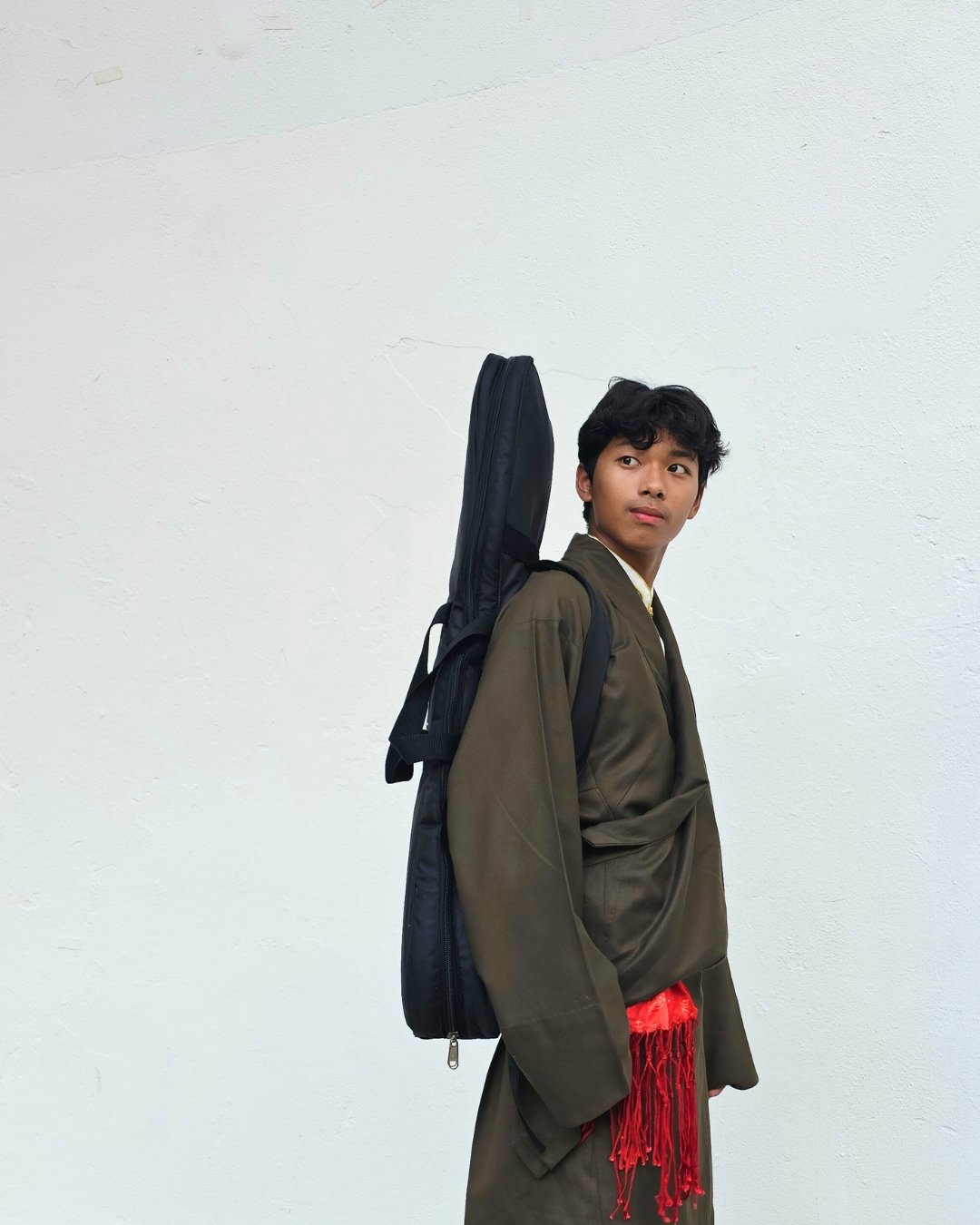ལྷ་སར་གནས་མཇལ་དུ་འགྲོ་བ། Children Storybook "All the way to Lhasa" | Nornor
This children book is a Tibetan translation of the storybook, “All the way to Lhasa” by Barbara Helen Berger
Why you should buy this book for your children:
Aid visual thinking
Helps in Tibetan vocabulary building
Age appropriate content
Manufacturer’s recommended age: 3 - 12 years
Made in Tibet
This children book is a Tibetan translation of the storybook, “All the way to Lhasa” by Barbara Helen Berger
Why you should buy this book for your children:
Aid visual thinking
Helps in Tibetan vocabulary building
Age appropriate content
Manufacturer’s recommended age: 3 - 12 years
Made in Tibet
This children book is a Tibetan translation of the storybook, “All the way to Lhasa” by Barbara Helen Berger
Why you should buy this book for your children:
Aid visual thinking
Helps in Tibetan vocabulary building
Age appropriate content
Manufacturer’s recommended age: 3 - 12 years
Made in Tibet
In this rendition of a Tibetan parable, Berger, known for her work in "Grandfather Twilight," portrays the journey of two individuals bound for the sacred city of Lhasa. Along the path, an elderly woman, clad in the revered colors of burgundy and yellow, imparts wisdom to two travelers with differing approaches.
To the hurried man astride a swift horse, she gently cautions, "Lhasa is very far... You'll not reach it before nightfall." Yet, when a young boy, accompanied by his steadfast yak, seeks the same guidance, her response shifts: "Lhasa is very far... but you can arrive before nightfall."
Berger's expansive, mural-like paintings, framed in rich burgundy, depict the boy's challenging journey through treacherous mountain terrain. As he navigates perilous switchbacks, persuades his reluctant yak across a fragile rope bridge, and confronts a fierce blizzard, he encounters fluttering prayer flags, inscribed stones, and towering shrines—resembling landmarks encountered on actual Tibetan pilgrimages, as explained in the afterword.
Recognizing the boy's resolute determination to persist, symbolized by the refrain "one foot in front of the other," the wise woman prophesies his safe and timely arrival in the magnificent city, where he passes a fallen horse and rider on his path. Berger juxtaposes realistically depicted characters against a lyrically stylized landscape, where swirling clouds and waves spill beyond the borders of the paintings, and mystical figures emerge in the mountain air.
Through this portrayal, Berger subtly underscores the mysticism of the journey alongside the timeless wisdom of perseverance and steady progress—a moral with universal resonance.


















